Filter by
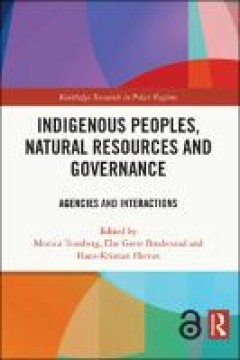
Indigenous peoples, natural resources and governance : agencies and interactions
This book offers multidisciplinary perspectives on the changing relationships between states, indigenous peoples and industries in the Arctic and beyond. It offers insights from Nordic countries, Canada, Australia, New Zealand and Russia to present different systems of resource governance and practices of managing industry-indigenous peoples’ relations in the mining industry, renewable resour…
- Edition
- -
- ISBN/ISSN
- 9781003131274
- Collation
- xiv, 216 p. : ill.
- Series Title
- -
- Call Number
- 333.2 TEN i
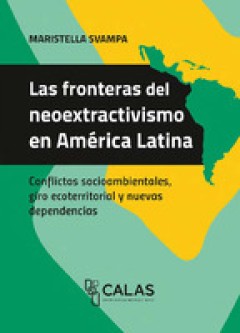
Las fronteras del neoextractivismo en américa latina : conflictos socioambie…
This book analyzes the progress of neoextractivism in Latin America through four fundamental nuclei: the first proposes the categories of neoextractivism and Consensus of Commodities as privileged windows to read the current crisis; the second analyzes the phases of neoextractivism from 2003 to the present; the third addresses the social resistance and the new political grammars from the concep…
- Edition
- -
- ISBN/ISSN
- 9783837645262
- Collation
- 144. p.
- Series Title
- -
- Call Number
- 303.6098. MAR l
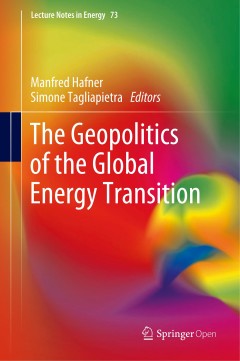
The geopolitics of the global energy transition
The world is currently undergoing an historic energy transition, driven by increasingly stringent decarbonisation policies and rapid advances in low-carbon technologies. The large-scale shift to low-carbon energy is disrupting the global energy system, impacting whole economies, and changing the political dynamics within and between countries. This open access book, written by leading energy…
- Edition
- -
- ISBN/ISSN
- 9783030390662
- Collation
- xxv, 381p. : ill.
- Series Title
- -
- Call Number
- 327 GEO g
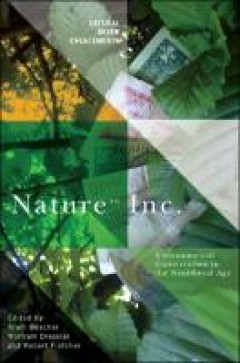
Nature Inc: environmental conservation in the neoliberal age
With global wildlife populations and biodiversity riches in peril, it is obvious that innovative methods of addressing our planet’s environmental problems are needed. But is “the market” the answer? Nature™ Inc. brings together cutting-edge research by respected scholars from around the world to analyze how “neoliberal conservation” is reshaping human–nature relations.
- Edition
- -
- ISBN/ISSN
- 9780816539215
- Collation
- 278 pages : illustrations ; 24 cm.
- Series Title
- Critical green engagements: investigating the green economy and its alternatives
- Call Number
- 363.7 NAT n
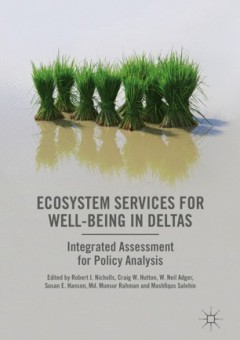
Ecosystem services for well-being in deltas : integrated assessment for polic…
This book answers key questions about environment, people and their shared future in deltas. It develops a systematic and holistic approach for policy-orientated analysis for the future of these regions. It does so by focusing on ecosystem services in the world’s largest, most populous and most iconic delta region, that of the Ganges-Brahmaputra delta in Bangladesh. The book covers the concep…
- Edition
- -
- ISBN/ISSN
- 9783319710938
- Collation
- l, 593p. : ill.
- Series Title
- -
- Call Number
- 333.709 ECO e
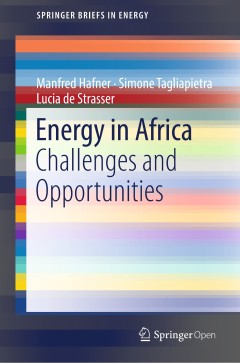
Energy in Africa : challenges and opportunities
This open access book presents a picture of the current energy challenges on the African continent (and the Sub-Saharan region in particular) and proposes pathways to an accelerated energy transition. Starting with an analysis of the status quo and the outlook for Africa’s energy demand and energy access, it provides an account of the available resources, including hydrocarbons and renewable …
- Edition
- -
- ISBN/ISSN
- 9783319922195
- Collation
- xx, 112p. : ill.
- Series Title
- -
- Call Number
- 333.7915 HAF e
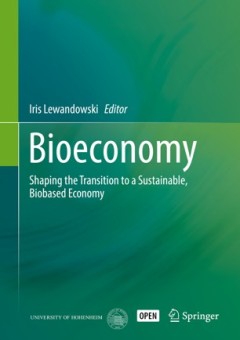
Bioeconomy : shaping the transition to a sustainable, biobased economy
This book defines the new field of "Bioeconomy" as the sustainable and innovative use of biomass and biological knowledge to provide food, feed, industrial products, bioenergy and ecological services. The chapters highlight the importance of bioeconomy-related concepts in public, scientific, and political discourse. Using an interdisciplinary approach, the authors outline the dimensions of the …
- Edition
- -
- ISBN/ISSN
- 9783319681528
- Collation
- vi, 356p. : ill.
- Series Title
- -
- Call Number
- 338.927 BIO b
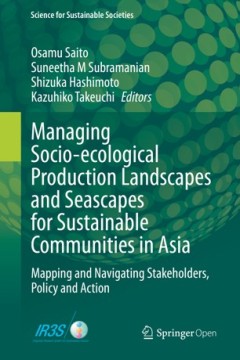
Managing socio-ecological production landscapes and seascapes for sustainable…
This open access book presents up-to-date analyses of community-based approaches to sustainable resource management of SEPLS (socio-ecological production landscapes and seascapes) in areas where a harmonious relationship between the natural environment and the people who inhabit it is essential to ensure community and environmental well-being as well as to build resilience in the ecosystems tha…
- Edition
- -
- ISBN/ISSN
- 9789811511332
- Collation
- x, 179p. : ill.
- Series Title
- -
- Call Number
- 333.7 MAN m
 Computer Science, Information & General Works
Computer Science, Information & General Works  Philosophy & Psychology
Philosophy & Psychology  Religion
Religion  Social Sciences
Social Sciences  Language
Language  Pure Science
Pure Science  Applied Sciences
Applied Sciences  Art & Recreation
Art & Recreation  Literature
Literature  History & Geography
History & Geography